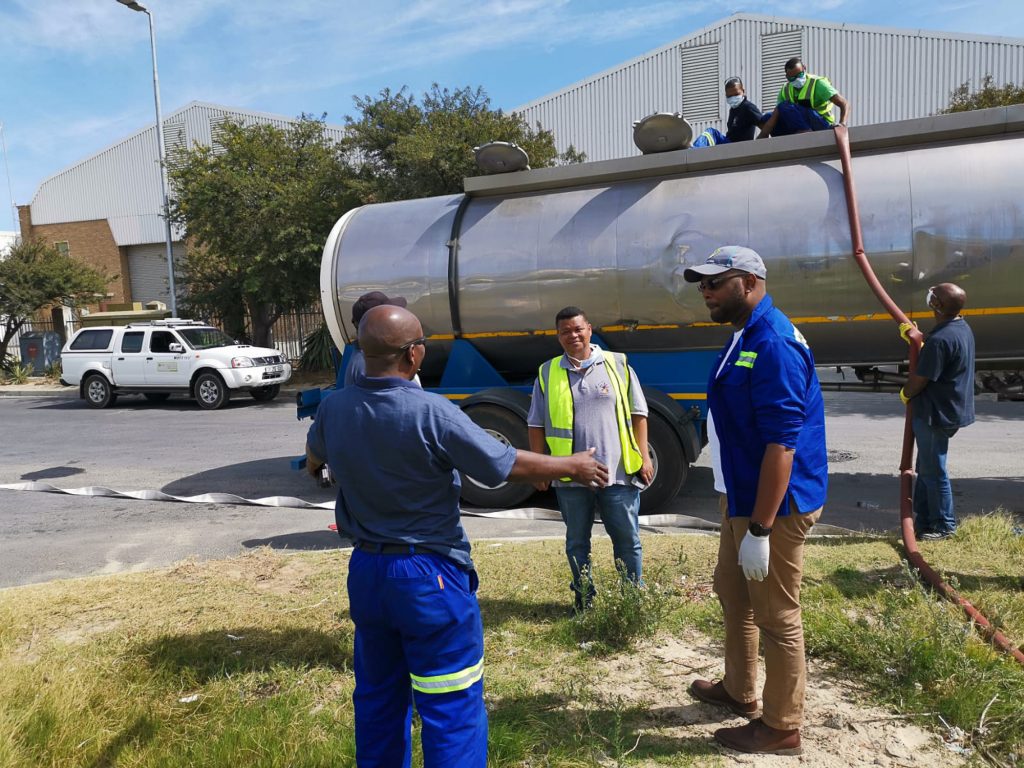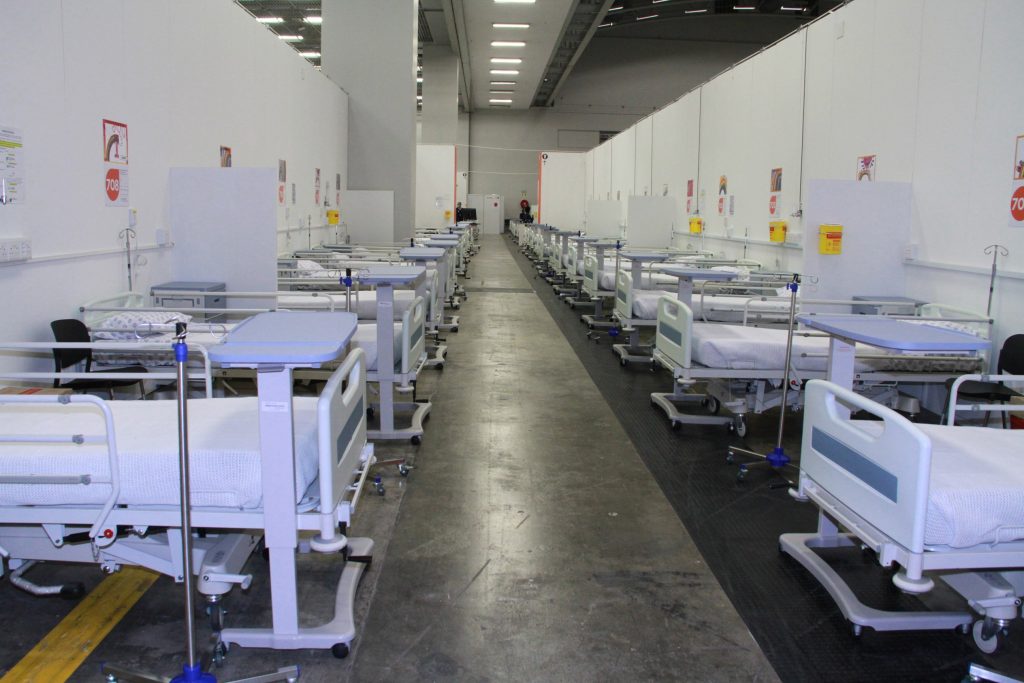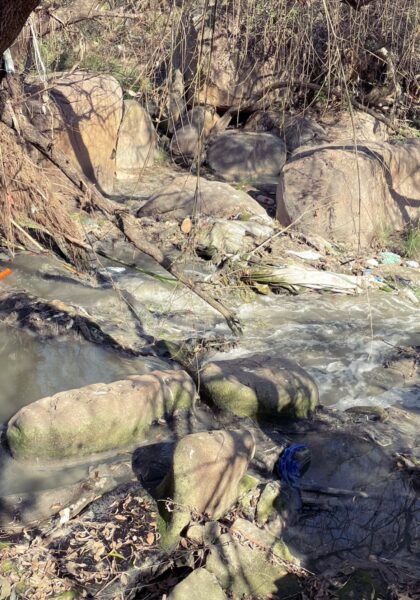Voice of the Local Government
Essential For Economic Recovery
Service delivery at local government level has been hampered by the impact of COVID-19 and the lockdown. While essential government services have been allowed to operate throughout the lockdown, the economic and social impacts of the pandemic have hindered efficient service delivery. Government has turned to its partners in the private sector to assist with addressing these challenges.
Rand Water ramps up water provision to schools across the country
A prime example of this type of collaboration is the partnership between government, and water services provider Rand Water. The Department of Water and Sanitation situated the national COVID-19 Command Centre for Water and Sanitation at Rand Water in March. In this role, the water utility works with national and local government to distribute and install almost 8 000 water tanks in water-stressed communities.
“We have a long-standing commitment to serving our communities that now includes partnering with government in the fight against COVID-19. We have heeded the call by President Ramaphosa for increased partnerships, solidarity, collaboration and the sharing of knowledge and experience to fight the pandemic,” says Justice Mohale, media relations officer at Rand Water.
As schools reopened, the partnership expanded to include the provision of safe, clean water to school communities. “We intend to use our technical expertise and the experience gained to partner with the Department of Basic Education and school communities with the distribution and installation of water tanks in schools throughout the country where no hand-washing facilities exist,” Mohale explains. Rand Water has undertaken to provide water to 3 126 schools across South Africa.

Partnering to strengthen the healthcare sector
As COVID-19 cases continue to rise, the private sector has a critical role to play in contributing towards strengthening the national healthcare system to deal with the forthcoming peak in infections.
Health Minister Dr Zweli Mkhize has always stressed the importance of co-operation between the public and private healthcare sectors in fighting the virus. “COVID-19 will make collaboration between the public and private healthcare sector much closer,” Mkhize told a World Health Organisation media briefing in late April.
The private sector has already played a critical role in South Africa’s overall capacity for testing – an area universally recognised as essential for combatting COVID-19. Tests conducted in the private sector have, throughout the pandemic, regularly accounted for almost 50 per cent of overall tests conducted.
In addition, government has collaborated with the private sector to provide quarantine, isolation and treatment sites. In the COVID-19 hotspot of the Cape Town metro, the Cape Town International Convention Centre (CTICC) is a prime example of this. The CTICC housed an 800-bed field hospital to accommodate the overflow of COVID-19 patients from public and private hospitals.
Taubie Motlhabane, CEO of the CTICC, said that the convention centre was proud to contribute to the fight against the pandemic.
“During these extraordinary times, we welcomed the opportunity for the CTICC to be part of the solution. The conversion of CTICC into a temporary COVID-19 hospital facility added to the resources needed in our healthcare system to fight this pandemic. We are proud to be part of the team.”
Meanwhile, Old Mutual also partnered with the Western Cape government to provide a 300-bed quarantine and self-isolation facility at a golf club in Pinelands. This site, developed at a cost of R4.5-million, was also used as a testing facility earlier on in the COVID-19 crisis.
Bonginkosi Madikizela, the province’s MEC for Transport and Public Works, says that these projects illustrate how the fight against COVID-19 can be significantly boosted by contributions from all sectors of society.
“It is testimony to the fact that we are in this fight together – that, ultimately, this is not a battle to be won by the state or by the private sector, but indeed one that calls on all of us to contribute, whether it is the government, private business, or NGOs and, ultimately, every citizen of our country,” he says.
Government modelling on the spread of COVID-19 infections has taken into account the critical need for ICU beds in the private sector to become an important element of the state’s capacity to handle the pandemic.
Ahmed Banderker, CEO of Afrocentric, South Africa’s largest health administration and medical risk management solutions provider, explains how public-private partnerships could be the most promising model for serving the healthcare needs of South Africa.
“We can leverage the comparative advantages of both the private and public sectors and build hospitals to serve millions of poverty-stricken citizens. These partnerships would enable communities to combine the resources and medical expertise of the public sector with the operational and environmental specialities of the private sector to create sustainable infrastructure.”
Banderker says that the COVID-19 pandemic has the opportunity to accelerate the implementation of National Health Insurance (NHI) in South Africa, a project that will require a merging of the public and private sector healthcare systems.
“There is a saying that one should never let a crisis go to waste. At the end of the pandemic, we need to look at the learnings of all countries and apply them in the context of NHI. COVID-19 is a good test for public-private partnerships in the development, testing and implementation of mutually beneficial and innovative healthcare delivery models and solutions for our rainbow nation. Through public-private partnerships, we can create an NHI that is pro-growth, pro-business and pro-job creation and be ready for the
next pandemic.”

Businesses contribute to relief efforts
One of the most visible aspects of the pandemic has been the efforts made by businesses to support government’s COVID-19 programmes and relief initiatives. Businesses have cumulatively donated billions of rands to the Solidarity Fund. Others have adopted a more
hands-on approach.
AECI, a diversified supplier of services to the mining and industrial sectors, was one of the first private companies to develop a rapid response plan to COVID-19, focused on helping the most vulnerable members of society.
The group has invested more than R5-million in relief initiatives, including the provision of PPE to medical staff, the distribution of food parcels and hand sanitiser, and the installing of hand-washing stations and taps at public clinics and in rural areas.
The next phase of AECI’s initiative is to focus on food security relief programmes and the donation of rapid testing kits to help expand the net of testing. Mark Dytor, AECI’s chief executive, says that collaboration between local governments and communities are integral to the business’s success in implementing such programmes.
“Equipping communities with the right tools and education will empower them to stay safe at this particularly challenging time,” explains Dytor. “Responsible engagement with our stakeholders, including communities and regulators, is a cornerstone of AECI’s values. We are indeed stronger together when we work together for a common purpose.”






 Sign-up and receive the Business Media MAGS newsletter OR SA Mining newsletter straight to your inbox.
Sign-up and receive the Business Media MAGS newsletter OR SA Mining newsletter straight to your inbox.